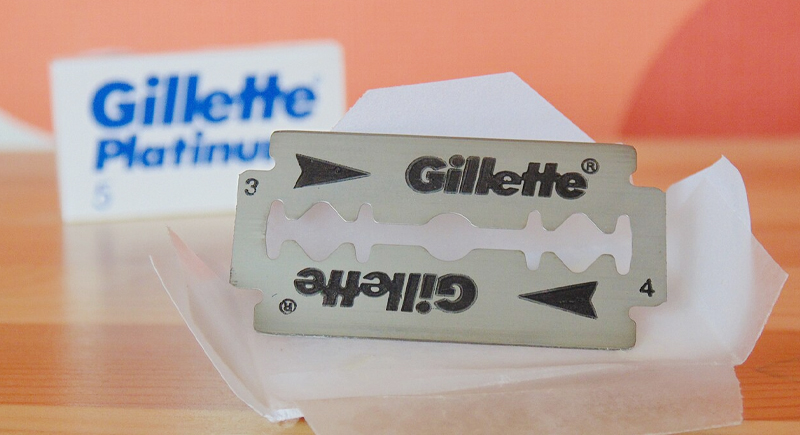How Dollar Shave Club’s One Ad Cost Gillette $8 Billion
This story involves a $4,500 video that upended a century-old industry and knocked billions off a household name. A small startup, armed with sarcasm and a box of razors, managed to embarrass one of the world’s most recognizable brands. Their single ad, barely two minutes long, contributed to an $8 billion write-down at Gillette.
The Viral Spark That Changed Shaving
In 2012, Michael Dubin stood in front of a camera in his Los Angeles warehouse, wearing a suit and cracking jokes about overpriced razors. “Our blades are f***ing great,” he said, straight to the camera. The video went live on YouTube, and within two days, 12,000 people had signed up. The company’s servers crashed, and overnight, Dollar Shave Club became a sensation.
The timing was perfect. For years, Gillette had dominated the market with high prices and endless blade upgrades. Dollar Shave Club offered something simpler: affordable razors delivered straight to your door. It came across as real, funny, and easy to understand.
The Underdog Becomes the Disruptor
Dollar Shave Club launched in 2011 with backing from startup incubator Science Inc. and quickly attracted venture capital from firms like Andreessen Horowitz and Kleiner Perkins. By 2016, the company had grown to more than 3 million subscribers and caught the attention of Unilever, which bought it for $1 billion in cash. That’s quite a leap for a business that started with $4,500.
As it grew, Dollar Shave Club kept the same tone. Its marketing carried an inside-joke energy that connected with people tired of paying too much for blades. Gillette, meanwhile, held tight to its premium image, and that distance made Dollar Shave Club even more appealing.
Gillette’s Response Backfires

Image via Wikimedia Commons/András Bögöly from Győr, Hungary
Gillette once held over 70 percent of the U.S. razor market. By 2018, that number had fallen to 54 percent. The company cut prices by 12 percent and introduced its own subscription service, but the tide had already turned. Then came 2019, when Gillette tried to reinvent itself with a new campaign called “We Believe.”
The ad targeted toxic masculinity and called for men to “be better.” While the intent was good, the reaction was brutal. Many longtime customers saw it as a lecture, not encouragement. Boycotts spread across social media, and videos of people throwing razors in the trash filled timelines.
Within months, Gillette’s parent company, Procter & Gamble, reported an $8 billion write-down on the brand. Analysts linked the financial hit to both the failed campaign and years of lost market share.
Rewriting the Rules
Dollar Shave Club’s success revealed how fragile dominance can be. Consumers had grown weary of paying premium prices for minor upgrades. Dollar Shave Club delivered what customers actually wanted: convenience, humor, and a fair deal. By the time Gillette tried to adapt, its customers had already moved on.
Today, Dollar Shave Club remains one of the most recognizable direct-to-consumer brands in the U.S., still selling through subscriptions and on retail shelves across thousands of stores. A two-minute video shot in a warehouse changed the tone of an entire industry.